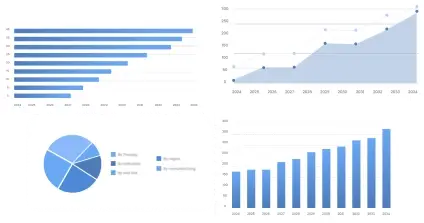The global cognitive supply chain market size is calculated at USD 10,400 million in 2024 and is predicted to reach around USD 44,880 million by 2034, expanding at a CAGR of 15.7% from 2024 to 2034.
The cognitive supply chain market is growing due to an increasing need to optimize operations with inventory management and predictive analytics for decision-making on data. Solutions to challenges are being presented on the back of IoT, big data analytics, and AI for efficiency in the supply chains. There are always differences between the deployment models regarding on-premise systems and those cloud-based ones, primarily because of the popularity of any on-premise system in terms of security and control, especially in regulated industries. Cloud-based systems lead the way because they can scale without increased costs. Regional adoption is different for each region, as South Korea will invest in new AI-propelled industries. Japan will use automation to bridge the labor deficit, and in the United Kingdom, e-commerce demands must have allowed them to join the fray.
Chinese cognitive solutions support its manufacturing as well as digital transformation, and therefore, their technology ecosystem drives pervasive adoption, as seen in the United States. Already established technology firms are eager to see what these new economies have in store for further expansion of the market. Drivers such as e-commerce demand, labor shortages, and resilience of supply chain in a post-pandemic world have developed such demand. Cognitive tools can be primarily categorized into three main offerings: forecasting, analytics, and risk management. The manufacturing, automotive, retail, health care, and logistics industries can benefit from these cognitive solutions. Platforms make visibility better, optimize processes, and provide actionable insights, helping companies navigate complexity and operational outcomes in the cognitive supply chain market.

